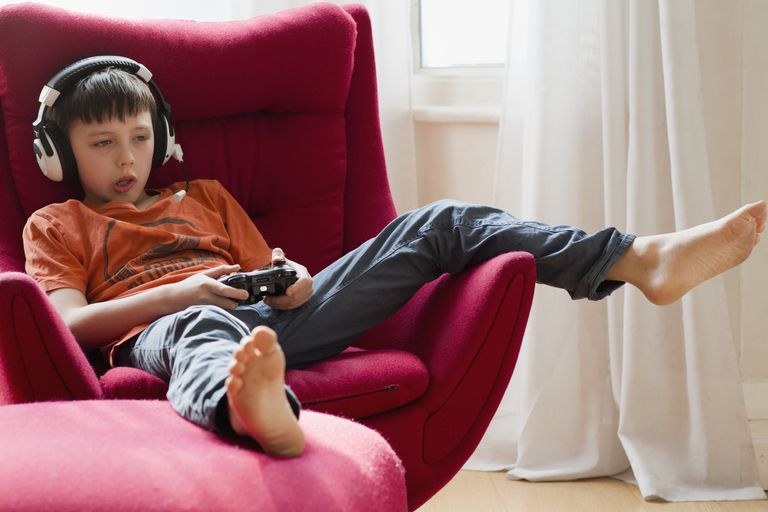The moment I first held an Atari 2600 controller at a friend’s home in 1981, I was captivated by the possibility of in-home gaming, not having to “put my quarter up” and wait my turn, or ask my financially strapped mother for said quarter. Times were tight, and asking for quarters compromised my mom, who hated saying “no”, but often needed to out of necessity. That year my parents came through with a 2600 of my own for Christmas, and my life changed.
Time spent gaming has increased in correlation to evolving technology to the extent we are now at the point where the World Health Organization (WHO) has included Gaming Disorder in the 2018 edition of the International Classification of Diseases Version 11 (ICD-11). Although gaming disorder has not yet been included in the American Psychiatric Association’s Diagnostic and Statistical Manual (DSM), it’s inclusion is certainly not far off.
By the 2000s, professional gaming leagues were established that promised the possibility of monetary prizes and endorsement deals. This added a level of complication to diagnosing gaming disorder because claims of aspiration to professional gaming are often used to mask addiction. Also alarming is the extent to which laptops and computers have become another modality for gaming. College students addicted to computer games often bring their laptops to school libraries where gaming is disguised as schoolwork. Consequently, the blurring of lines between aspiration and obsession has left parents unsure how to act.
As American families struggle to manage game play through discipline and mental health assistance, other nations have taken more drastic measures. For example, the Chinese government has implemented curfews and spending limits for minors, not only to reduce addiction, but also because of a noted increase in nearsightedness among gamers. Because it is unlikely the United States would implement similar restrictions, parents must enforce their own restrictions; a road blocked when kids claim they are striving towards professional status.
A prominent symptom of gaming disorder is decreased socialization commensurate with increased hours of gaming, but that is far from the only symptom. Similar to the effects of any addiction, gaming disorder impacts academics, hygiene, physical activity, sleep, and familial relationships. In addition, addicts will steal parents’ credit cards in order to purchase games without permission, and often experience anxiety and depression when confronted with gaming restrictions.
Fear of their kids becoming anxious or depressed has led some parents to adopt a passive stance that consequently contributes to the problem. Furthermore, some parents believe their kids are getting adequate socialization through headsets used to communicate with “friends” through online gaming connections. Given the extent to which digital communication has replaced person to person contact, it’s easy to understand parents’ acceptance of online gaming as a primary means of socialization. It seems like a million years ago when kids were rarely home, and instead played pick-up sports, “bottle caps”, or manhunt.
Parents whose children claim they are preparing for a professional gaming career need to know the difference between addiction, and aspiration. Professional gamers know the limits, and do not allow gaming to consume hours outside the practice schedules they create for themselves. They ensure necessary self-care, socialization, and sleep. In other words, gaming is part of their life as opposed to being their entire life. Professional gamers do not live in a fantasy world in which high scores rank higher than high grades, and online communication takes the place of person to person contact.
When parents bring their kids to therapy for gaming addiction, they should prepare to be part of the treatment because It isn’t typical for one family member’s struggles to exist in a vacuum. When kids become absorbed in gaming, parents are playing a role through a variety of factors including lack of connection or unwillingness to set limits. Because kids are unlikely to discipline themselves, parents must set strict gaming limits. Furthermore, children are more likely to flourish socially when properly socialized at home. Family game nights during which old school board games are used is a potential solution.
Gaming addiction is insidious in that it is often not detected until it impacts other life domains. Parents who suspect gaming has crossed the line from hobby to obsession should contact a mental health professional, and prepare to be involved in treatment. Once addiction sets in, enforcing limits in the absence of mental health support often causes depression, anxiety, and outbursts. A therapist will help families work together through structure, and opening lines of communication. Aside from addiction, underlying issues also need to be addressed so that a strong foundation for success is built. Like other addictions, recovery from gaming disorder is possible, but a combination of support, engagement, and learned replacement skills is needed to ensure long-term success, and self-actualization.





